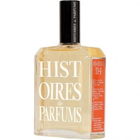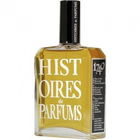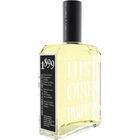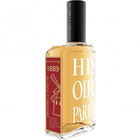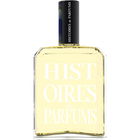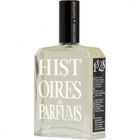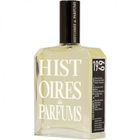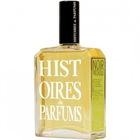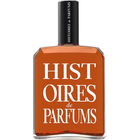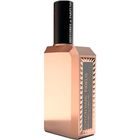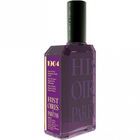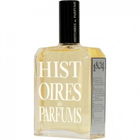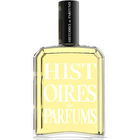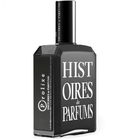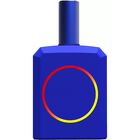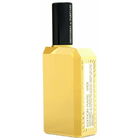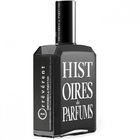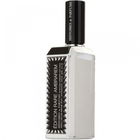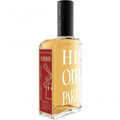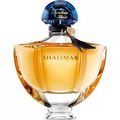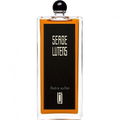
Louce
138 Reviews

Louce
Very helpful Review
The last empress
A fragrance experience with exciting development, really moving emotional impulses, interesting brain-kicks and a simply sensational ginger-violet: 1826 - Eugénie de Montijo.
But why this name was chosen stays unclear to me: Maria Eugenia Ignacia was born in 1826 as a Spanish noblewoman. In 1853, she (now named Eugénie de Montijo) became the wife of Napoleon III and so the last French empress. In her husband´s representation she took a hand in French politics and was very conservative and clerical: True neo-absolutism. She was not very popular ("the Spaniard"), but was seen as a beautiful, elegant woman, who promoted the young fashion guild (she was the first prominent client of „Worth“). Later, when France had finally checked off the empire, the ex-empress lived in British exile.
Why this name? Because the fragrance notes are conservative? Because they are elegant and fashionable, despite old-noble origin? Because this fragrance is an anachronistic relic? Because there is something origanlly Spanish in it? Because it´s christian or imperial? Perhaps because it is contemporarily fashionable and the same time somehow old-fashioned.
Whatever: It's great!
The start is quite mandarin-like, only moderately fresh, not lemony, not clean and very soon dealt with, because the middle note starts. I smell a clear anise-note from the very beginning, until the beautiful ginger-violet is in full bloom and then blending with it.
Perhaps here is this modern/old-fashioned-analogy: The often harmless and frumpy violet, gets a tremendous temperament-kick by the ginger-note. It´s classical and the same time modern.
A melodious floweriness accompanies the ginger-violet in the beautiful middle note, without accentuating a distinct single flower. First, the cinnamon is very subtle in the background (but clearly recognizable, if you know it's there). It becomes prominent, when the warm, skin-tight and ambery base note unfolds. I smell patchouli, but luckily just a little whiff of it. The incense is courtly restrained, too. Amber and vanilla take the leading parts in a harmonic and soft drydown.
1826-EdM has no sex appeal worthy of mention. Nevertheless, it is attractive, without an explicit erotic nature, yet playful, yet charming, yet alluring.
Truely unisex, this fragrance is not, I think. Feminine with a certain little amount of unisex-potential for the right male user, I would say.
1826-EdM has my very, very big recommendation for testing!
But why this name was chosen stays unclear to me: Maria Eugenia Ignacia was born in 1826 as a Spanish noblewoman. In 1853, she (now named Eugénie de Montijo) became the wife of Napoleon III and so the last French empress. In her husband´s representation she took a hand in French politics and was very conservative and clerical: True neo-absolutism. She was not very popular ("the Spaniard"), but was seen as a beautiful, elegant woman, who promoted the young fashion guild (she was the first prominent client of „Worth“). Later, when France had finally checked off the empire, the ex-empress lived in British exile.
Why this name? Because the fragrance notes are conservative? Because they are elegant and fashionable, despite old-noble origin? Because this fragrance is an anachronistic relic? Because there is something origanlly Spanish in it? Because it´s christian or imperial? Perhaps because it is contemporarily fashionable and the same time somehow old-fashioned.
Whatever: It's great!
The start is quite mandarin-like, only moderately fresh, not lemony, not clean and very soon dealt with, because the middle note starts. I smell a clear anise-note from the very beginning, until the beautiful ginger-violet is in full bloom and then blending with it.
Perhaps here is this modern/old-fashioned-analogy: The often harmless and frumpy violet, gets a tremendous temperament-kick by the ginger-note. It´s classical and the same time modern.
A melodious floweriness accompanies the ginger-violet in the beautiful middle note, without accentuating a distinct single flower. First, the cinnamon is very subtle in the background (but clearly recognizable, if you know it's there). It becomes prominent, when the warm, skin-tight and ambery base note unfolds. I smell patchouli, but luckily just a little whiff of it. The incense is courtly restrained, too. Amber and vanilla take the leading parts in a harmonic and soft drydown.
1826-EdM has no sex appeal worthy of mention. Nevertheless, it is attractive, without an explicit erotic nature, yet playful, yet charming, yet alluring.
Truely unisex, this fragrance is not, I think. Feminine with a certain little amount of unisex-potential for the right male user, I would say.
1826-EdM has my very, very big recommendation for testing!







 Top Notes
Top Notes  Bergamot
Bergamot Mandarin orange
Mandarin orange Heart Notes
Heart Notes  White blossoms
White blossoms Cinnamon
Cinnamon Ginger
Ginger Violet
Violet Base Notes
Base Notes  Blond woods
Blond woods Patchouli
Patchouli White musk
White musk Amber
Amber Frankincense
Frankincense Vanilla
Vanilla
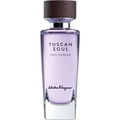



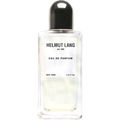








 Eastasiak
Eastasiak Vlad
Vlad bonjouralice
bonjouralice Jpnerd
Jpnerd Gavarrus
Gavarrus SchatzSucher
SchatzSucher Licorice
Licorice FrauKirsche
FrauKirsche Gandix
Gandix Pollita
Pollita